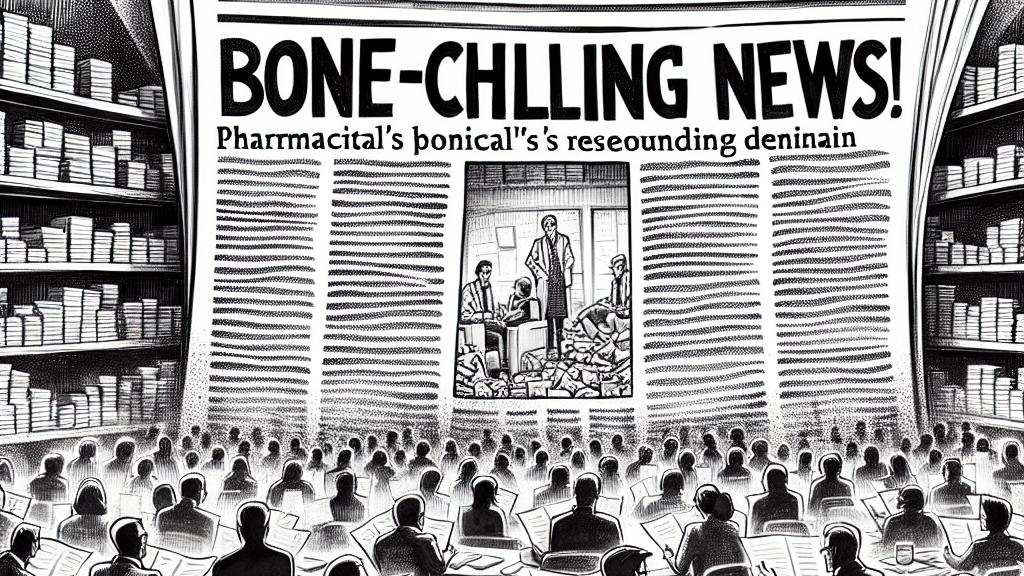Bone-Chilling News: Sinopharm Unit Disavows Cadaver Controversy!
Overview
- Sinopharm's China National Medicines rigorously denies ties to Shanxi Osteorad amid grave allegations.
- Shanxi Osteorad is under investigation for unlawfully acquiring human remains for medical applications.
- This controversy raises pressing ethical questions and could impact industry regulations.

Sinopharm's Resounding Denial
In a dramatic development from Beijing, Sinopharm's subsidiary, China National Medicines, has vehemently denied any connection to Shanxi Osteorad Biomaterial Co., a firm embroiled in scandalous accusations. On August 9, Sinopharm issued a formal statement to the Shanghai Stock Exchange, categorically asserting that it has no business dealings with Shanxi Osteorad. This statement comes as a response to concerning reports alleging that the company has engaged in the illegal procurement of human remains—widely condemned as unethical and disturbing. Sinopharm's proactive stance seeks to preserve the integrity of its operations and reassure stakeholders about the company's commitment to ethical practices in the healthcare sector.
Shocking Allegations Against Shanxi Osteorad
The allegations against Shanxi Osteorad are extraordinarily alarming, involving claims that the company illegally acquired human bodies and limbs purportedly for creating allogeneic bone implantable materials. These practices have drawn the attention of local authorities, who have initiated investigations into the 'theft' and trafficking of thousands of cadavers. Reports, including those from the government-backed media outlet The Paper, unveiled this shocking narrative, igniting a firestorm of public scrutiny regarding the ethical considerations of using human remains in medical products. This troubling situation emphasizes the need for accountability and transparency in medical and pharmaceutical practices.
Broader Implications for Medical Ethics and Public Trust
The fallout from this scandal presents profound implications not only for the companies involved but also for the entire medical community. As the public grapples with the ethical ramifications of such actions, it becomes increasingly clear that robust regulatory frameworks are essential to prevent similar incidents in the future. Stakeholders within the healthcare industry must engage in open dialogues about ethical standards and work towards transparent practices that honor the dignity of human remains. This incident serves as a wake-up call, urging industry leaders to prioritize ethical considerations over profit, reinforce public trust, and ensure that medical advancements respect the moral and ethical dimensions fundamental to health care.

Loading...